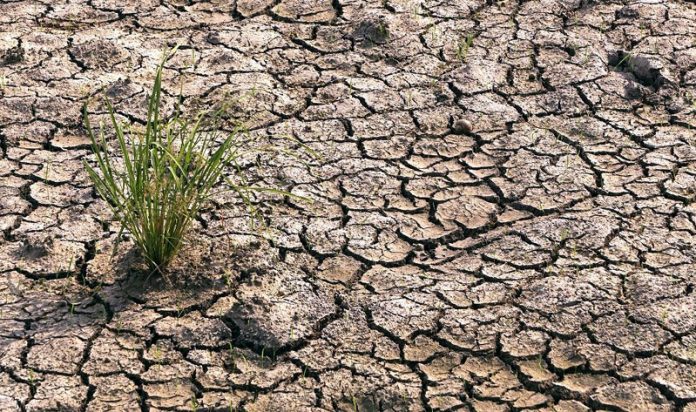Irfan Tramboo
Srinagar, Jan 9: With dry spell persisting across Kashmir during a season typically conducive to rains and snowfall, experts have warned of severe impacts on the agriculture sector, leading to water scarcity in the upcoming cropping season.
Dr. Sameera Qayoom, a scientist at SKUAST-K, pointed out that a similar trend was observed in the previous year, where temperatures remained consistently above normal, and precipitation was absent when needed, adversely affecting the agriculture sector.
“Throughout 2023, temperatures remained consistently above normal. In December, both maximum and minimum temperatures were above normal, indicating a sustained increase in both heat and cold. Simultaneously, there was no rainfall from February to April, followed by an abundance of rain, disrupting the required balance,” she explained.
Dr. Sameera highlighted that even the higher reaches have not received sufficient snowfall, indicating a 50 percent deficit, ultimately impacting water supply to the plains during summers.
“The lack of snowfall negatively impacts the recharging of existing glaciers crucial for agricultural purposes, leading to water shortages in the water bodies required for irrigation,” she added.
Looking ahead to the next cropping season, Dr. Sameera warned of potential water scarcity if there is no rain or snowfall from January to April, further exacerbated by the absence of snow in the hills hindering glacier replenishment.
Another scientist emphasized that if the current trend continues – changes in temperature and decreased precipitation – it is anticipated that the summer will witness an increase in temperature, affecting various crops such as almonds and cherries.
“The previous year already saw a decrease in cherry production and other crucial crops due to early flowering and increased precipitation, further impacting the yield,” the scientist noted.
Agricultural experts also stated that high-density crops requiring drip irrigation would be further affected, as continuous water supply is essential for this method.
They pointed out the potential for changes in rice cultivation due to non-availability of irrigation and other factors, as observed in the previous year when farmers were advised to opt for alternative crops that do not require continuous water supply.
Meanwhile, the weatherman in Srinagar has once again reported no major weather activity until January 16, except for a few feeble western disturbances that could lead to light snow in the upper reaches, indicating another dry week despite the ongoing 40-day Chilla-i-Kalan completing over 20 days.
“There is no good news related to weather in terms of rain or snow till 16th January; there could be one feeble western disturbance hitting tonight and another on January 12-13; we are not going to have much more than light snow in the extreme higher reaches,” Dr. Mukhtar Ahmad, Director MeT in Srinagar said.
He also underlined that December in J&K was one of the warmest months in the last several years, noting that in the coming days, the temperature will not witness any major dip.


